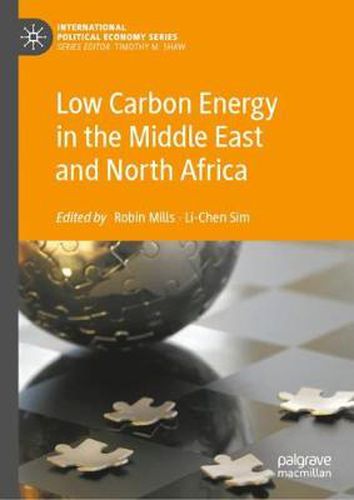Readings Newsletter
Become a Readings Member to make your shopping experience even easier.
Sign in or sign up for free!
You’re not far away from qualifying for FREE standard shipping within Australia
You’ve qualified for FREE standard shipping within Australia
The cart is loading…






This title is printed to order. This book may have been self-published. If so, we cannot guarantee the quality of the content. In the main most books will have gone through the editing process however some may not. We therefore suggest that you be aware of this before ordering this book. If in doubt check either the author or publisher’s details as we are unable to accept any returns unless they are faulty. Please contact us if you have any questions.
This book explores the evolving roles of energy stakeholders and geopolitical considerations, leveraging on the dizzying array of planned and actual projects for solar, wind, hydropower, waste-to-energy, and nuclear power in the region. Over the next few decades, favorable economics for low carbon energy sources combined with stagnant oil demand growth will facilitate a shift away from today’s fossil fuel-based energy system. Will the countries of the Middle East and North Africa be losers or leaders in this energy transition? Will state-society relations undergo a change as a result? It suggests that ultimately, politics more so than economics or environmental pressure will determine the speed, scope, and effects of low carbon energy uptake in the region. This book is of interest to academics working in the fields of International Relations, International Political Economy, Comparative Political Economy, Energy Economics, and International Business. Consultants, practitioners, policy-makers, and risk analysts will also find the insights helpful.
$9.00 standard shipping within Australia
FREE standard shipping within Australia for orders over $100.00
Express & International shipping calculated at checkout
This title is printed to order. This book may have been self-published. If so, we cannot guarantee the quality of the content. In the main most books will have gone through the editing process however some may not. We therefore suggest that you be aware of this before ordering this book. If in doubt check either the author or publisher’s details as we are unable to accept any returns unless they are faulty. Please contact us if you have any questions.
This book explores the evolving roles of energy stakeholders and geopolitical considerations, leveraging on the dizzying array of planned and actual projects for solar, wind, hydropower, waste-to-energy, and nuclear power in the region. Over the next few decades, favorable economics for low carbon energy sources combined with stagnant oil demand growth will facilitate a shift away from today’s fossil fuel-based energy system. Will the countries of the Middle East and North Africa be losers or leaders in this energy transition? Will state-society relations undergo a change as a result? It suggests that ultimately, politics more so than economics or environmental pressure will determine the speed, scope, and effects of low carbon energy uptake in the region. This book is of interest to academics working in the fields of International Relations, International Political Economy, Comparative Political Economy, Energy Economics, and International Business. Consultants, practitioners, policy-makers, and risk analysts will also find the insights helpful.